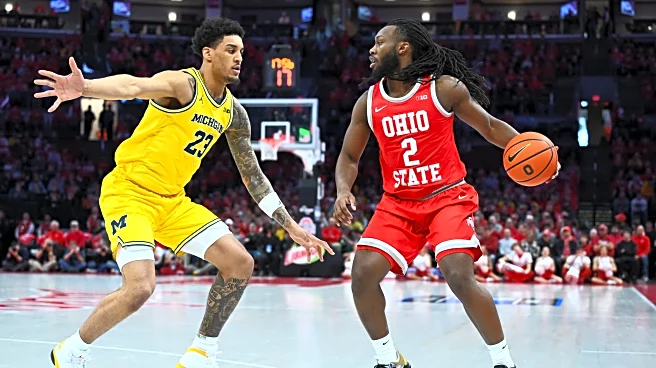Rapid Read • 7 min read
Berkshire Hathaway has reported a 5.1% decline in revenue from its consumer goods segment for the second quarter of 2025. The company attributes this downturn to the impact of U.S. import tariffs and internal restructuring efforts. Brands such as Fruit of the Loom and Jazwares have been affected, with sales volumes and logistics operations facing challenges. The broader financial performance of Berkshire Hathaway reflects similar strains, with operating income falling by 4% compared to the previous year. Despite these challenges, Brooks Sports, a subsidiary of Berkshire, reported an 18.4% increase in revenue, showcasing resilience amid shifting trade dynamics. Warren Buffett, CEO of Berkshire Hathaway, has expressed concerns about the use of tariffs, advocating for balanced trade policies.
AD
The decline in Berkshire Hathaway's consumer goods revenue highlights the broader impact of trade tensions and tariffs on U.S. businesses. As companies navigate an increasingly protectionist global trade environment, the need for strategic flexibility and operational adaptability becomes paramount. The challenges faced by Berkshire Hathaway underscore the pressures on companies reliant on international supply chains, affecting their financial performance and market competitiveness. Warren Buffett's stance against tariffs reflects a broader skepticism of protectionist policies, emphasizing the importance of global market access and cost efficiency. The situation serves as a reminder of the interconnectedness of global trade and the potential consequences of policy shifts on business operations.
Berkshire Hathaway may continue to adjust its strategies in response to ongoing trade tensions and restructuring efforts. The company might explore opportunities to enhance operational efficiency and mitigate the impact of tariffs on its consumer goods segment. Stakeholders and investors will be closely monitoring Berkshire's actions, including potential shifts in business focus or strategic initiatives. The performance of Brooks Sports suggests that certain segments can adapt to changing trade dynamics, offering insights into potential areas for growth and resilience. As the global trade environment evolves, companies like Berkshire Hathaway will need to remain agile and responsive to maintain their competitive edge.
AD
More Stories You Might Enjoy












